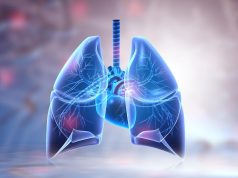Maternal use of valproate, phenobarbital, and topiramate early in pregnancy linked to increased risk versus lamotrigine use
By Elana Gotkine HealthDay Reporter
FRIDAY, July 18, 2025 (HealthDay News) — Maternal use of valproate, phenobarbital, and topiramate early in pregnancy is associated with an increased risk for major malformations in infants compared with lamotrigine, according to a study published online July 16 in Neurology.
Sonia Hernandez-Diaz, M.D., Dr.P.H., from the Harvard T.H. Chan School of Public Health in Boston, and colleagues quantified the relative risk for major malformations in offspring after maternal use of specific antiseizure medications (ASMs) early in pregnancy, with special interest in second-generation ASMs, among pregnant women enrolled in the North American Antiepileptic Drug Pregnancy Registry between 1997 and 2023.
The analysis included 7,311 participants taking an ASM as monotherapy during the first trimester (mean age, 30 years). The researchers found that the risk for major malformations was 2.1, 2.0, 2.8, 5.1, 2.8, 9.2, 1.5, 1.5, 1.3, 6.0, 3.2, and 0 percent for lamotrigine, levetiracetam, carbamazepine, topiramate, phenytoin, valproate, oxcarbazepine, gabapentin, zonisamide, phenobarbital, pregabalin, and lacosamide, respectively. The risk ratio was 5.1, 2.9, and 2.2 for valproate, phenobarbital, and topiramate, respectively, compared with lamotrigine. There was a specific association seen for topiramate with a higher risk for cleft lip.
“Our study looked at a number of drugs and provides valuable information for health care providers and people who may become pregnant to make more informed decisions about the use of these medications during pregnancy,” Hernandez-Diaz said in a statement.
Two authors disclosed ties to the pharmaceutical industry.
Editorial (subscription or payment may be required)
Copyright © 2025 HealthDay. All rights reserved.








